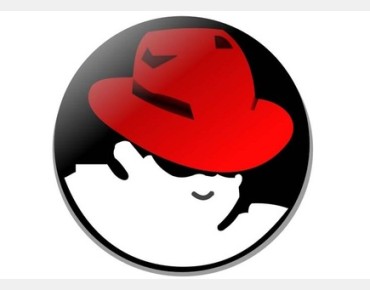Red Hat Looks Beyond Enterprise With Samsung Deal

Amid a big week for the open source community, Red Hat announced a batch of new partnerships during its annual company event this week, including an alliance with consumer electronics giant Samsung to deliver mobile applications to the enterprise along with joint development of custom mobile apps.
In addition to the Samsung Electronics American partnership, Red Hat said it has lined up two new customers for OpenShift and Red Hat Enterprise Linux for SAP HANA: travel industry infrastructure provider Amadeus and audio equipment maker Peavey Electronics.
It also unveiled a new version of its OpenShift platform along with a Linux application container service.
Analysts said the mobile apps deal with Samsung represents a rebranding of Red Hat's FeedHenry enterprise mobile application platform acquired last September. The acquisition was intended to expand Red Hat's application development, integration and platform-as-a-service (PaaS) offerings while enabling the company support mobile app development on-premise and in the cloud.
At the same time, the mobile app platform is being integrated with OpenShift as Red Hat seeks to offer an extensible, open PaaS platform.
Red Hat and Samsung's Business Services unit said they would deliver "industry-specific" mobile apps running on the rebranded Red Hat Mobile Application Platform. Those apps include business intelligence, inventory management and other standard business apps.
The partnership also includes a "developer ecosystem" of tools and other resources to develop and deliver mobile business applications. While consumer app development tends to focus on mobile devices, a market Samsung dominates, Craig Muzilla, head of Red Hat's application platforms business, noted in a statement that its enterprise mobility strategy focuses on development and delivery platforms.
Indeed, the partners stressed the sheer breadth of Samsung's mobile device offerings that would be merged with Red Hat's open source middleware and an OpenShift cloud services platform that now includes a mobile app platform.
The partners said the initial focus of the mobile app partnership would be the U.S. market.
According to Al Hilwa, a software market analyst with IDC, Red Hat's acquisition of FeedHenry last September represented a significant shift. Red Hat is "now proceeding to integrate that technology in multiple ways even as they run it as an independent business. That Samsung came to Red Hat to make inroads in the enterprise really showcases the credibility Red Hat has gained in mobility.
"Red Hat is entrenched in the enterprise and that is a big help for Samsung as well," Hilwa added, noting that the deal may also "push Red Hat’s mobile platform and potentially other software into the enterprise in a more integrated fashion."
Separately, Red Hat said Wednesday (June 24) travel technology provider Amadeus would build its automated cloud platform on OpenShift Enterprise, Red Hat's private cloud platform.
Meanwhile, Peavey Electronics said it would deploy Red Hat Enterprise Linux for SAP HANA.
Building on other application container announcements this week, Red Hat also released its OpenShift Enterprise 3 PaaS offering based on the Docker container format, Kubernetes orchestration and Red Hat Linux 7.
As Red Hat, Docker and other members of a new Open Container Project work to develop container standards that will hasten adoption, Red Hat said its Atomic Enterprise Platform also unveiled this week aims to scale container deployments. The container platform includes scale-out clusters of Red Hat Enterprise Linux 7 and Red Hat Enterprise Linux Atomic Host along with Docker as a Linux container format and Kubernetes for container orchestration, the company said.
"This is shaping up to be one of the biggest open source weeks," IDC's Hilwa noted.
Related
George Leopold has written about science and technology for more than 30 years, focusing on electronics and aerospace technology. He previously served as executive editor of Electronic Engineering Times. Leopold is the author of "Calculated Risk: The Supersonic Life and Times of Gus Grissom" (Purdue University Press, 2016).










